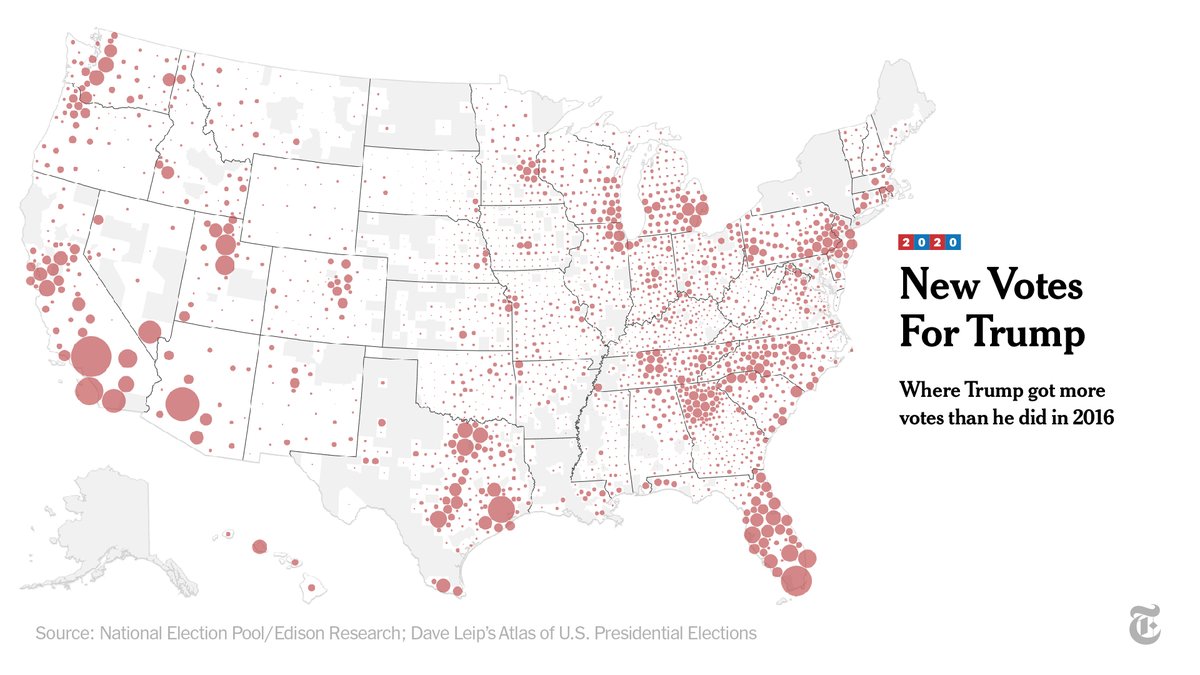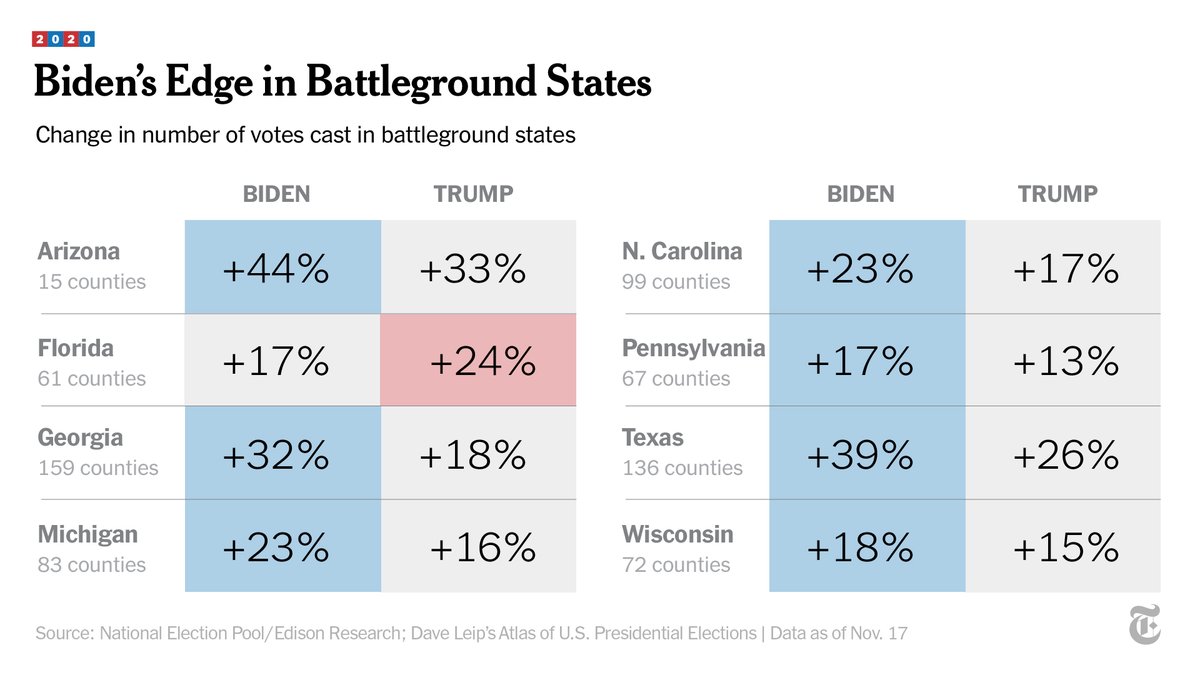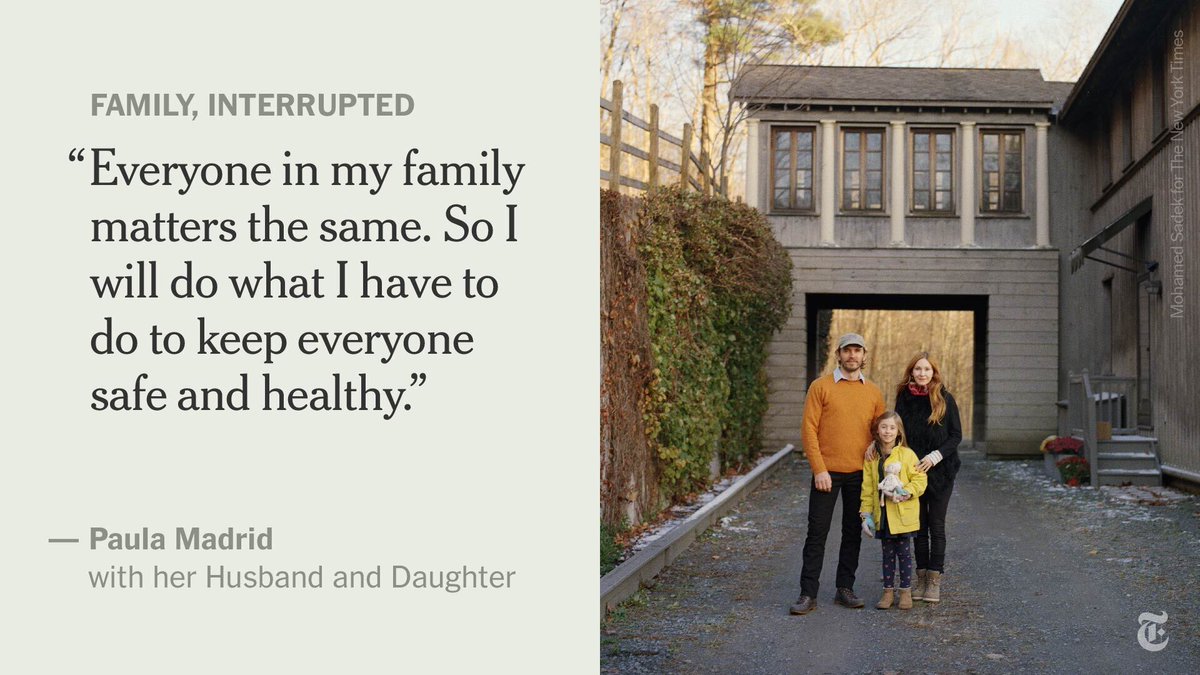
Voters turned out in record numbers in 2020, even during a pandemic. Both major parties gained millions more votes compared with 2016.
Our analysis found that votes were up in nearly every county. We explored where each candidate benefited most. nyti.ms/35HqH5P
Our analysis found that votes were up in nearly every county. We explored where each candidate benefited most. nyti.ms/35HqH5P
President Trump received 10.1 million more votes across the U.S. than he received four years ago, including in areas with a majority of Hispanic voters. nyti.ms/35HqH5P 

President-elect Joe Biden added 12.6 million votes over Hillary Clinton’s total from four years ago. He did well in urban and suburban counties, especially those with educated white voters, including in Republican areas. nyti.ms/35HqH5P 

Trump found even more new followers in white blue-collar voters. But even as his divisive message galvanized an unexpectedly large following, it alienated a bigger one.
Biden rode the enthusiasm of a Democratic coalition as well as desertions from the GOP white middle class.
Biden rode the enthusiasm of a Democratic coalition as well as desertions from the GOP white middle class.
Trump won a healthy share of additional Hispanic voters compared with 2016 and may have benefited a little from reduced enthusiasm for Biden in some Democratic counties with large Black populations. nyti.ms/35HqH5P 

Biden’s biggest group of additional voters came from large urban and suburban counties that are mostly white, and big cities in the South and West.
In Republican Fort Worth, for example, Biden got 121,000 more votes than Clinton had; Trump got 62,000 more than in 2016.
In Republican Fort Worth, for example, Biden got 121,000 more votes than Clinton had; Trump got 62,000 more than in 2016.

Whether or not voters had college degrees was the most significant predictor of additional turnout.
Areas with concentrations of white voters without a college degree moved toward Trump.
White areas with better-educated populations moved decisively away.
Areas with concentrations of white voters without a college degree moved toward Trump.
White areas with better-educated populations moved decisively away.

Although both parties received millions more votes than four years ago, Biden’s edge among white, educated voters helped ensure a substantial popular vote margin, and just enough votes in battlegrounds to win the Electoral College. 

See more of our analysis of voting patterns across more than 2,500 counties that shows some of the major ways that this flood of voters upended traditional political alignments, setting a new stage for the post-Trump era. nyti.ms/2KaABo0
• • •
Missing some Tweet in this thread? You can try to
force a refresh











